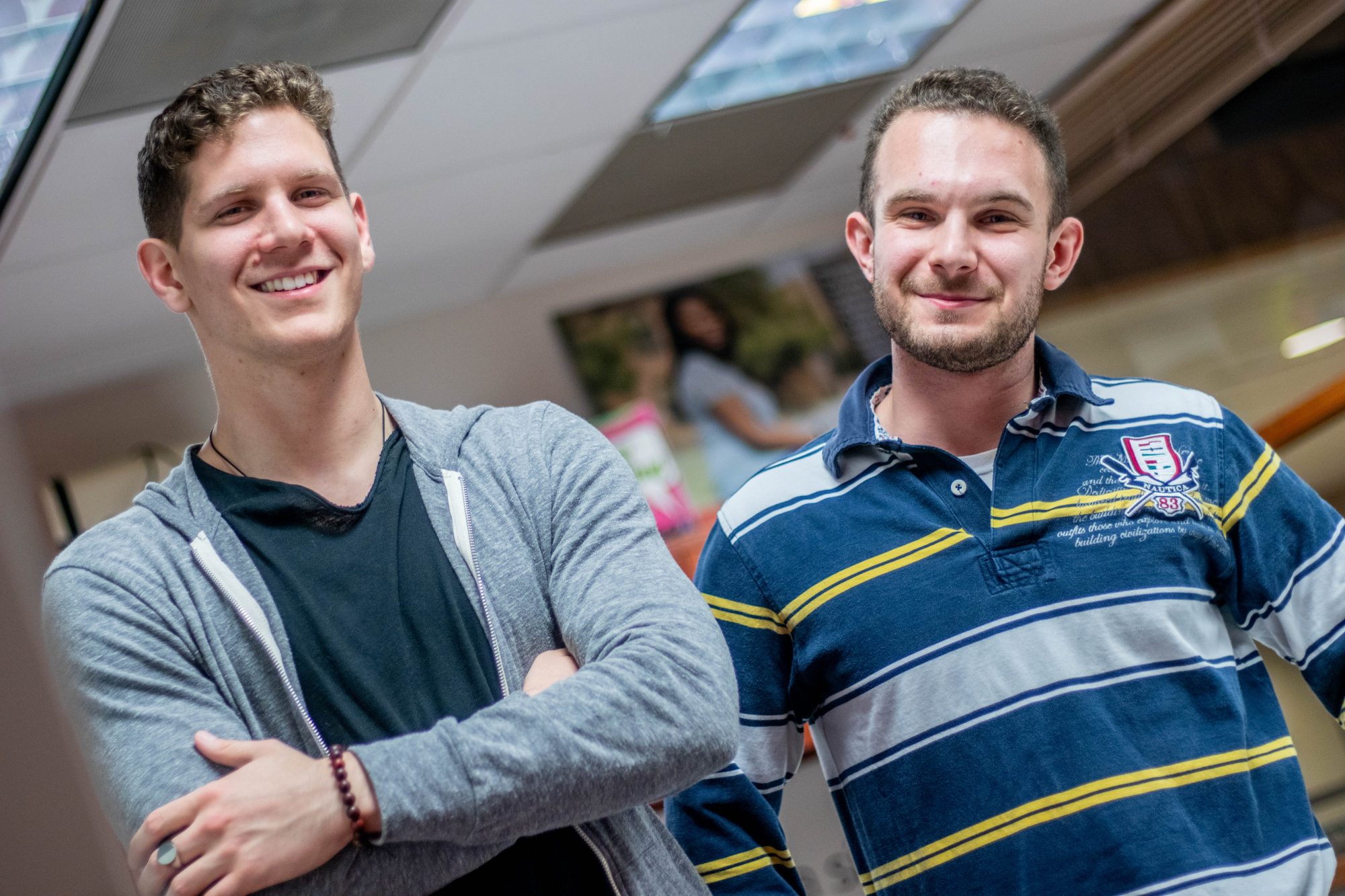University of Maryland senior Thomas Savransky said he’d rather spend six hours trying on outfits in a brick-and-mortar store than search for new clothes on a website.
“I never trusted online shopping,” the finance major said. “I never thought I’d get the right size, the right fit and I didn’t want to deal with returns.”
So, he founded Enly.
The application, which is still in the piloting stages, aims to help online shoppers easily find clothes that fit. Users input their measurements, and Enly provides size recommendations for a host of common brands across the country.
And if someone doesn’t have their measurements on hand, Savransky added, the technology uses information from a range of the most popular brands across the country to recommend sizing at specific stores. If a user tells the program they’re a size medium at H&M, for example, it could tell them they’re probably a large at American Eagle.
The application can provide fit recommendations, too — which Savransky stressed is different than sizing.
“Fit is more about the style and how you wear it,” he said, “and size more about, ‘Can you put this on?’”
Enly launched a pilot for their interface on Feb. 8, said Jonny Schneider, a senior finance and information systems major and the chief operating officer of the company. This will allow them to plug the application into any online retailer and designer website that agrees to partner with them.
[Read more: UMD cafes and stores are officially free of most single-use plastic]
The venture was born in 2017, when Savransky went to New York Fashion Week to meet with designers and buyers. He talked to them about “virtual fitting,” which he said would help consumers see how clothes would really look on them.
“The overwhelming response was that [they would] love to have something that simplifies this process,” Savransky said.
So he got to work — he put together a team, started researching the market and coming up with ideas for a solution.
In addition to helping simplify the shopping experience, Savransky and Schneider hope their technology can help create a more sustainable retail system. Return rates for online clothing retail can be as high as 60 percent, according to a 2019 study by researchers at Sweden’s University of Gothenburg. The same rate is 8 to 10 percent in traditional stores, where shoppers have the option to try on clothes before purchasing.
The waste that goes into all those online shopping returns is immense, Schneider said.
“We’re dealing with packaging waste, we’re dealing with additional carbon emissions, we’re dealing with excess inventories being burned by fashion companies,” he said.
He and Savransky played around with the idea of adding a feature to the application in which the user would simply take a selfie and receive a personalized avatar they could use to “try on” different fits and sizes. But, at the moment, there’s too much room for error with that method, Savransky said.
“It’s fixable with some machine learning and just data collection,” he said, “but it doesn’t make sense early on.”
[Read more: Two UMD researchers may have found a new way to fight malaria]
Last summer, Savransky and Schneider were part of an accelerator program on the Dingman Center for Entrepreneurship, a center within this university’s business school, that allowed them to work on the company full-time. After completing the nine-week program, the duo started a fellowship with the center — which earned them up to $20,000 and an office space for the company.
Sara Herald is the director of Venture Development at the center. After working with the pair over the past academic year, she said she was impressed.
“They’re giving 110 percent every day to this company, while still taking classes and doing well on their classes,” Herald said.
But still, the road to graduation might be a little tricky for them.
Savransky has been a part-time student for the past year and a half. Despite being the same age as most of his peers, Savransky feels he lives in a completely different world.
“Everybody around me is thinking about schools and exams and internships,” Savransky said. “I’m thinking in terms of quarters … and business development.”
“I’m never graduating,” he joked.



